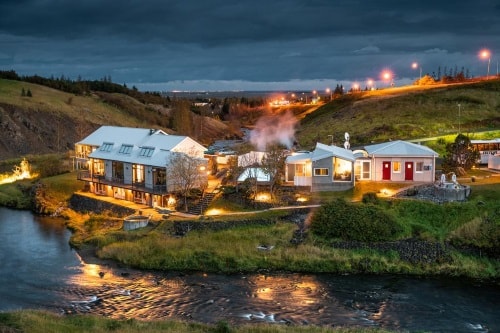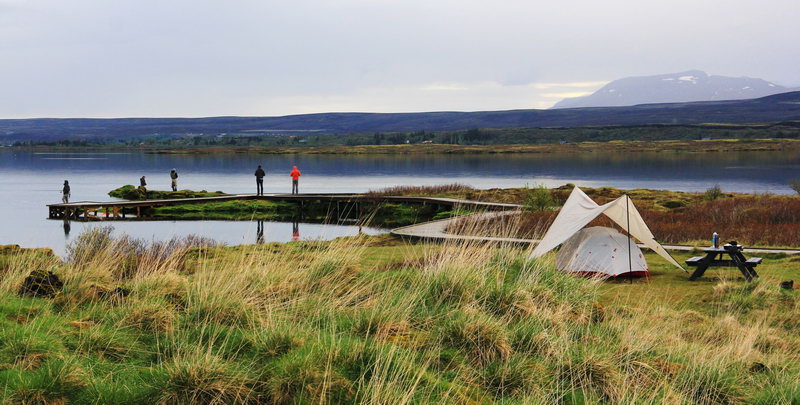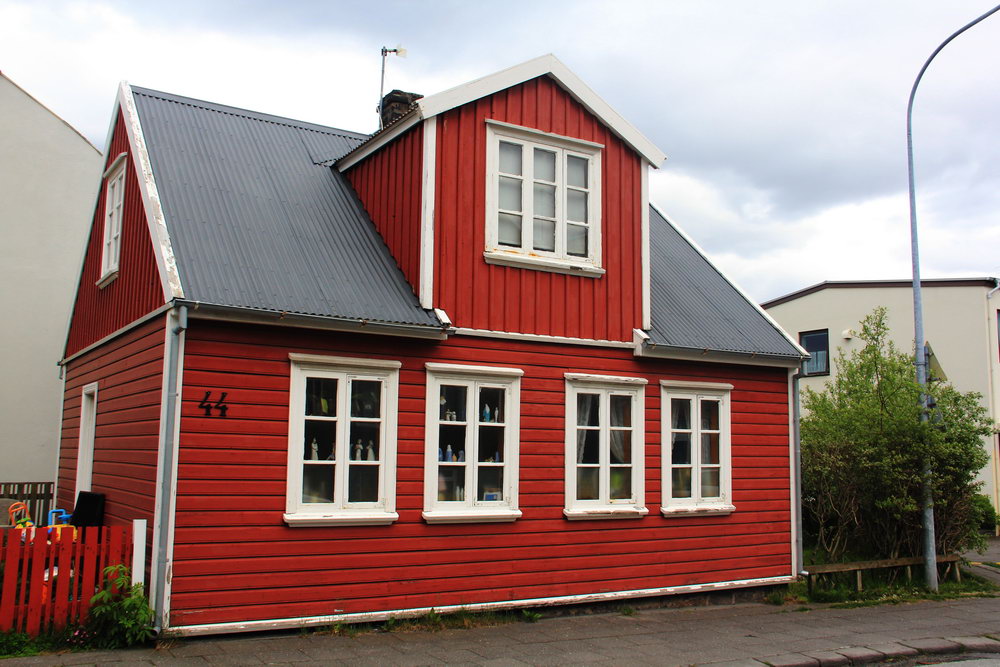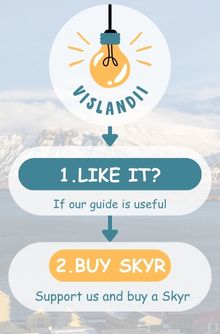TOP 10 most unusual and luxurious hotels in Iceland.
Transparent rooms for observing the northern lights, personal thermal pools, Viking hotel and much more.
Read more: The 10 Most unusual and beautiful hotels in Iceland
If you decide to go to Iceland and want to see the nature of this beautiful island, then you can live in a hotel, in a mobile home or in a tent at a campsite. Camping sites in Iceland are located near all the attractions, or even right on the territory of the attractions.
When we say camping, we often mean just spending the night in a tent. I immediately remember hiking in the forest for the weekend, and maybe in the mountains, where a camping place still needs to be found. And it's not a fact that it will be good. In Europe, when they talk about camping, they often talk about equipped camping areas.
Whether you are traveling on a budget or looking for a comfortable stay, in Iceland you will find accommodation to suit your needs. From luxury hotels in Reykjavik to friendly hostels, farmhouses or cozy campsites, you'll find the accommodation that's right for you.
The only thing worth remembering is that during the summer the midnight sun can interfere with you a little :)
- VAKINN - the official quality system for hotels in Iceland
- Hotels in Iceland
- Camping in Iceland
- Guesthouse, Mountain hut, Summer house
- Hostels
- Accommodation from locals on Airbnb
- Farm holidays
VAKINN - the official quality system for hotels in Iceland
VAKINN is the official quality and environmental system for Icelandic tourism. Only companies that adhere to the highest standards in all aspects of their work and meet all evaluation criteria have earned the right to wear the official VAKINN - Iceland quality and environment label.
The quality system is divided into two categories: the star/classification system for accommodation in Iceland and other tourism services. If the place where you decide to stay is recognized by the VAKINN association, you can be sure of the level of services provided, as well as that nature remains safe and intact.
Hotels in Iceland
Iceland is a popular tourist destination known for its stunning landscapes, hot springs, and Northern Lights. There are a variety of hotels available in Iceland, ranging from luxury resorts to budget-friendly accommodations.
One thing to keep in mind is that hotels in Iceland tend to be more expensive than in other countries, especially during peak tourist season (June to August). However, there are still some affordable options available.
Many hotels in Iceland offer unique experiences, such as staying in a glass igloo to watch the Northern Lights or soaking in a hot tub while surrounded by mountains and glaciers. Some hotels also offer guided tours of nearby attractions.
When choosing a hotel in Iceland, it's important to consider location. If you're planning to explore the countryside and natural attractions, you may want to stay in a hotel outside of Reykjavik. However, if you want to experience the city's nightlife and cultural attractions, a hotel in Reykjavik may be a better choice.
Overall, Iceland offers a range of hotel options to suit different budgets and preferences. It's important to do your research and book in advance, especially during peak tourist season. Hotels are classified according to the VAKINN quality system.
One of the best search engines for hotels in Iceland, as well as in other countries, is Booking.com.
There are still almost no cottages and guesthouses on the booking site, so for accommodation outside the cities, you should use other sites, for example, Guide To Iceland offers an excellent selection of accommodation from local residents with the ability to choose which type of accommodation you prefer.
Description of hotels classified according to the VAKINN level can be found on the official website for travelers in Iceland - www.inspiredbyiceland.com
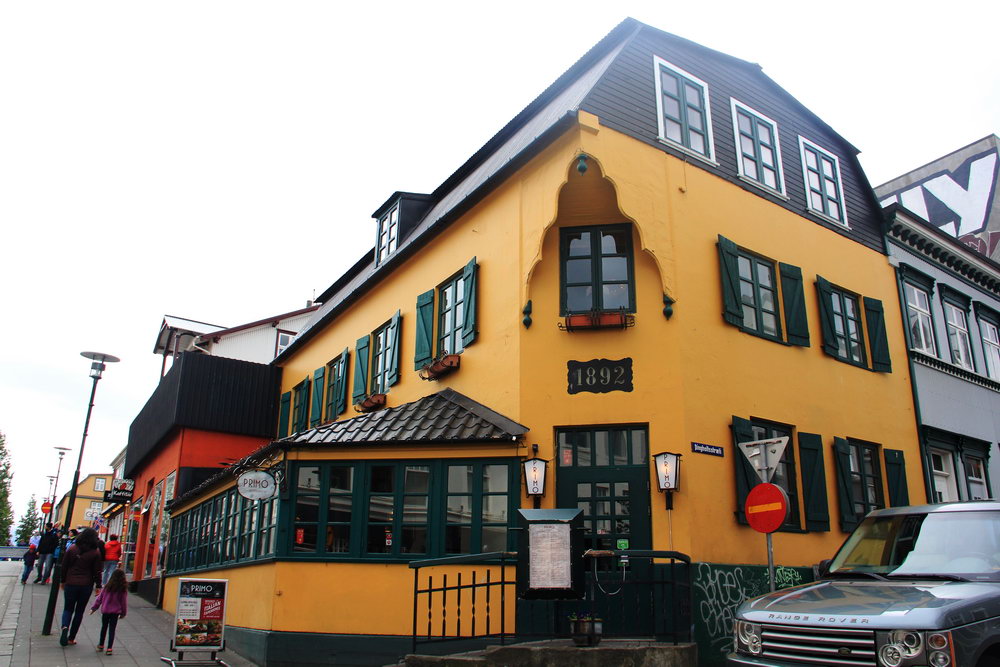
Camping in Iceland
There are over 170 registered campsites in Iceland. Campsites are usually open from early June to late August or mid-September, depending on location. However, there are campsites that open much earlier and close later. Campsites in Iceland are classified according to a standard compiled by the Icelandic Tourist Board called VAKINN.
Camping is a popular way to experience the natural beauty of Iceland. There are numerous campsites located throughout the country, ranging from basic sites with few amenities to more developed sites with facilities such as showers, toilets, and cooking areas.
Here are some useful tips for camping in Iceland:
-
Check the weather: Iceland's weather can be unpredictable, so be sure to check the forecast before heading out. Make sure you bring appropriate clothing and gear for the conditions.
-
Respect the environment: Iceland's natural environment is fragile, so be sure to camp only in designated areas and follow Leave No Trace principles. Pack out all trash and leave the campsite as you found it.
-
Plan your route: Plan your route in advance and book campsites in advance, especially during peak tourist season. Some campsites can fill up quickly, so it's best to book ahead of time to ensure availability.
-
Bring the right gear: Iceland's weather can be cold and wet, so make sure you bring appropriate gear for the conditions. A sturdy tent, warm sleeping bag, and waterproof clothing are essential.
-
Cook your own meals: Eating out in Iceland can be expensive, so consider cooking your own meals at the campsite. Most campsites have cooking facilities available.
-
Be prepared for the midnight sun: During the summer months, Iceland experiences 24-hour daylight, which can make it difficult to sleep. Consider bringing an eye mask or blackout shades to help you get some rest.
-
Consider a camper van: If you want to explore Iceland at your own pace, consider renting a camper van. This allows you to camp in different locations and avoid the need to pack and unpack your tent each day.
Overall, camping in Iceland can be an unforgettable experience. Just be sure to plan ahead, respect the environment, and bring appropriate gear for the conditions.
Guesthouse, Mountain hut, Summer house
In Iceland, you can find a few more not quite usual places to stay: guesthouse, mountain hut, summer house. All of them are slightly different and suitable for different types of travel.
Guesthouse - these are guest houses, which are also classified according to the Icelandic quality system VAKINN. More often in Iceland, these houses look like small family hotels, which means that you will be greeted with a homely atmosphere in them.
Mountain hut - mountain huts are located in many areas of the Highland and provide an opportunity to stop for the night for a tired traveler. In most cases, these mountain huts are very simple shelters along the most popular routes. Places in such shelters are very limited, so places must be booked in advance. It is also worth remembering that you will need your own sleeping bag to spend the night in most mountain huts.
Summer house - summer houses are a good alternative for people who want to spend their holidays quietly and calmly, as well as get to know a certain territory of Iceland. Summer houses are an economical choice for small groups and families. Most summer houses have cooking facilities and access to thermal waters.
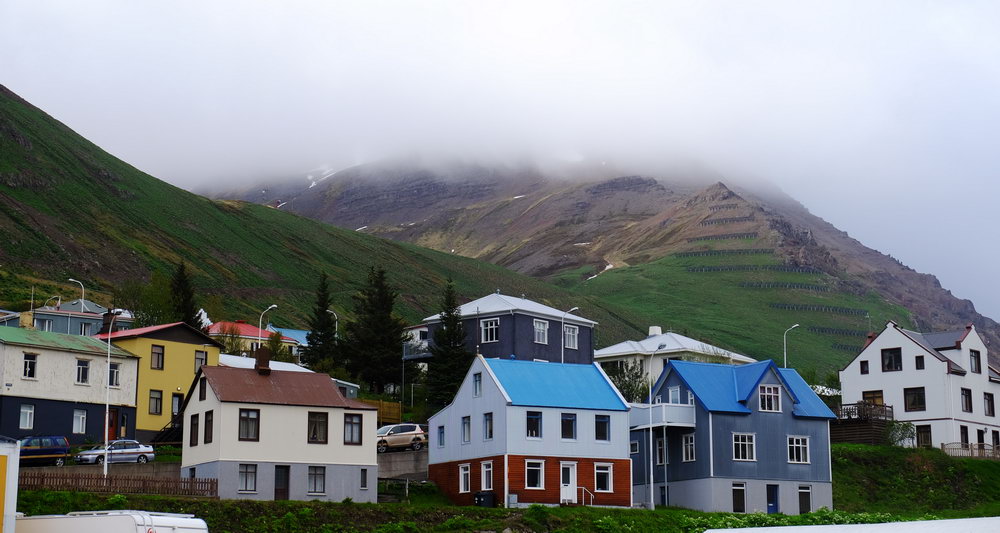
Hostels
Hostels are a popular accommodation option for budget-conscious travelers in Iceland. Hostels in Iceland generally offer dormitory-style rooms with shared facilities, although private rooms are also often available.
One difference from other countries is that hostels in Iceland tend to be more expensive than in some other parts of Europe. This is due to Iceland's high cost of living, which means that even budget accommodations can be relatively expensive.
Another difference is that hostels in Iceland often have more amenities than in some other countries. Many hostels offer common areas for socializing, as well as kitchen facilities for guests to prepare their own meals. Some hostels also offer additional services such as laundry facilities, bike rentals, and even tours of local attractions.
One thing to keep in mind is that hostels in Iceland can fill up quickly, especially during peak tourist season (June to August). It's best to book in advance to ensure availability.
Overall, hostels in Iceland offer a convenient and affordable way to experience the country's natural beauty and culture. Just be prepared to pay a bit more than you might in other parts of Europe, and book early to secure your spot.
In Iceland and in the capital - Reykjavik there is a large selection of youth and family hostels. Hostels offer affordable rooms and good quality accommodation in a friendly atmosphere.
Accommodation from locals on Airbnb
Airbnb is a popular accommodation option for travelers visiting Iceland. Many Icelanders rent out their homes, apartments, or rooms on the platform, providing a more local and authentic experience for visitors.
There are a variety of Airbnb options available in Iceland, ranging from budget-friendly shared rooms to luxurious private homes with stunning views. Many Airbnb hosts in Iceland also offer unique experiences, such as tours of nearby attractions or traditional Icelandic meals.
One benefit of using Airbnb in Iceland is that it can be more affordable than staying in a hotel, especially if you're traveling with a group or staying for an extended period. You can also often find accommodations in more remote locations that may not have traditional hotels or hostels nearby.
However, it's important to note that Airbnb accommodations in Iceland are subject to the same regulations as traditional hotels and guesthouses. This includes a tourism tax that is added to the price of the rental, as well as safety and health regulations.
Another consideration when using Airbnb in Iceland is that some remote locations may not have reliable internet or other amenities that you might expect in a traditional hotel. It's important to read reviews carefully and communicate with your host to ensure that the accommodation meets your needs.
Overall, Airbnb can be a great option for travelers looking for a unique and affordable way to experience Iceland. Just be sure to do your research, read reviews carefully, and communicate with your host to ensure a smooth and enjoyable stay.
For example, with Airbnb we rented a great house near Golden Circle with private hot tube - it was almost in the middle of nowhere so we were able to relax in thermal water and observe aurora boreal simultaneously.
Farm holidays
Icelandic Farm Holidays is a whole system spread all over Iceland. The Farm holidays system offers travelers not only accommodation, but also various services. Among the activities offered on the farms are horseback riding, fishing, sailing, hunting, glacier tours, sheep shearing and swimming. The cost varies both from the convenience of the farm itself and from the selected activities.
Farm holidays are a unique and popular way to experience Iceland's rural lifestyle and natural beauty. There are numerous farms throughout the country that offer accommodations to visitors, ranging from basic rooms to more luxurious options.
Staying on a farm in Iceland allows you to experience the country's farming culture and get up close with the animals and wildlife that call the countryside home. Many farms offer activities such as horseback riding, sheep herding, and even northern lights tours.
One benefit of farm holidays in Iceland is that they offer a more authentic and immersive experience than traditional hotels or guesthouses. You can learn about traditional Icelandic farming practices, sample local food and drink, and connect with locals in a way that you might not be able to in more touristy areas.
However, it's important to note that farm holidays in Iceland can be more rustic than other accommodation options. Some farms may have shared facilities, and amenities such as Wi-Fi and television may not be available.
Another consideration is that farms in Iceland are often located in more remote areas, so you may need a rental car or other transportation to explore the surrounding area.
Overall, farm holidays in Iceland offer a unique and authentic way to experience the country's rural lifestyle and natural beauty. Just be sure to do your research, read reviews carefully, and communicate with your host to ensure a comfortable and enjoyable stay.

